
What happens when someone dies
Sorting out finances after a bereavement
We know bereavements can be a very difficult time, and if you are affected, we’re sorry for your loss. We want to make sure dealing with us is easy and straightforward, so please get in touch with us for help and support during the process. There are also a number of external organisations which can provide help and support – these are detailed below.
We only need to be told once that someone has passed away. We will be able to find all of their account details they held with us.
Once you’ve told us about the person’s death, we’ll stop any further marketing communications to the account holder. It takes a short time to arrange this, so letters addressed to them in the meantime maybe received. We’re very sorry for any distress this causes.
Telling us about a bereavement
Anyone can tell us about a bereavement but we can only discuss account information with the following people:
- the next of kin, e.g. a parent or a family member
- an executor of the Will
- a personal representative if there is no Will
- a legal representative.
We’ll need to make sure we have proof of your identity before we can discuss any account information with you.
To provide us with proof of identity, we will need to see identification which shows your full name and current address. Examples of accepted identification can be found under ‘Telling us about the death’ section below.
To support you further, if there is enough money in the deceased account, it can be used for the following:
- Funeral costs
- Inheritance tax
- Probate or confirmation fees.
For more information about how money can be used to pay off the funeral costs, please see ‘How can the money be paid for the funeral?’ in the FAQ section below or alternatively, you can find the ways of contacting us in the ‘contact us’ section below.
What to do first
What to do first
When someone passes away, there are important decisions that need to be made that can sometimes feel overwhelming – let us help by guiding you through those first steps.
- Register the death
- Find the Will
- Organise the funeral
- Decide who will deal with the estate.
Register the death
The death needs to be registered at a register office within five days (eight days in Scotland) and might be by appointment.
This should be done at the register office closest to where the person died, so the documents needed can be issued the same day.
If the death is still under investigation, an interim death certificate or ‘coroner’s certificate of fact of death’ will be given instead of a death certificate.
It’s a good idea to get several copies of the death certificate, if possible, as it will need to be shown to different people and companies.
Find the Will
If there is a Will, make sure it’s the most up-to-date version, as some people hold on to older versions for their records.
Organise the funeral
A funeral director can be appointed or the Cemeteries and Crematorium Department of the local council can be contacted to make the necessary arrangements.
Decide who will deal with the estate
Next of kin
The next of kin can deal with the estate rather than appointing someone else to do it. Depending on the size of the estate, it may be necessary to apply for probate, which can be done on the HMRC website. Find out more in our FAQs below.
An appointed professional
It might be easier to appoint a solicitor, chartered accountant, specialist probate service or bank to handle the administration. Please keep in mind this service will need to be paid for.
Telling us about the death
Telling us about the death
The documents we need:
- Proof of death – Either the original death certificate or a certified copy. It can also be an interim death certificate or coroner’s certificate
- Proof of identification (ID) of the person(s) dealing with the estate – For example. a valid passport or driving licence. Please see the FAQs below
- Bereavement Notification Form (BNF) – The form provides details of the bereavement and helps Metro Bank to find the accounts held
- Deceased Estates Indemnity Form (DEIF) – Only needed for balances held by Metro Bank of between £5,000.01 to £25,000.00. It should be filled out by the Executor / Administrator / Next of Kin.
Take the original documents to a store, email them to us, or post copies.
Here’s a guide to what else is needed for different account types:
For all personal bank accounts (joint or sole):
Show what's required for all personal bank accounts (joint or sole) Hide what's required for all personal bank accounts (joint or sole)
- All the documents listed above
- The Will:
- Please bring the original
- If the Will is in a Metro Bank Safe Deposit Box, please let us know
- If there isn’t a Will we can still help with collecting a person’s estate, if the assets held with Metro Bank total less than £15,000. There is guidance on this on gov.uk: make a claim to a deceased person's estate.
For balances of £5,000 to £25,000:
Show what's required for balances of £5,000 to £25,000 Hide what's required for balances of £5,000 to £25,000
All of the above and:
- payment instructions for the funds (i.e. account details, or please specify if a cheque is needed).
If the funds are being paid into an account not held by ALL executors, we will need to see a letter of authority from the executors who are not parties to that account.
For balances of £25,000+:
Show what's required for balances of £25,000+ Hide what's required for balances of £25,000+
All of the above and:
- the original Grant of Probate (GOP).
For a Safe Deposit Box (SDB):
Show what's required for a Safe Deposit Box (SDB) Hide what's required for a Safe Deposit Box (SDB)
All of the above and:
- ID for all named executors/next of kin.
- The original Grant of Probate (GOP). (Not needed if the box was opened as a joint box before November 2014, and the deceased customer was the primary /secondary holder). See the FAQs below for more information.
Finally, the box will need to be closed in store.
For business accounts:
Show what's required for business accounts Hide what's required for business accounts
If the deceased is the sole account holder and the account is being closed, please follow the directions for personal accounts.
If the next of kin or a personal representative is going to take over the business OR the business has other signatories who wish to continue trading, please follow the directions for personal accounts, and also provide:
- ID for all named executors/next of kin.
The following also needs to happen:
- Inform Companies House of the death
- Have the deceased’s name removed from the business
- Have the new Director’s name added to the business
- Visit a store to have new mandates signed and the new Director added to the accounts.
Our bereavement services team will get in touch with the relevant Metro Bank Local Business Manager.
For a mortgage:
Show what's required for a mortgage Hide what's required for a mortgage
- The death certificate.
Our bereavement services team will get in touch with the mortgage team on your behalf.
For borrowing (e.g. a credit card):
Show what's required for borrowing (e.g. a credit card) Hide what's required for borrowing (e.g. a credit card)
Please follow the instructions for personal accounts, and also provide:
- ID for all named executors/next of kin.
For a RateSetter loan:
Show what's required for a RateSetter loan Hide what's required for a RateSetter loan
All of the documents listed above for ‘borrowing’.
Our bereavement services team will get in touch with RateSetter.
What happens next?
What happens next?
Here is a guide to what happens next for different account types:
Sole personal accounts:
Show what happens next for sole personal accounts Hide what happens next for sole personal accounts
We will credit any funds in the account to the beneficiary. We will then close the account.
This means that any Direct Debits and standing orders from the account will be cancelled. If there are ongoing payments you will need to arrange to pay them from another account.
Joint personal accounts:
Show what happens next for joint personal accounts Hide what happens next for joint personal accounts
The account will be put in the sole name of the remaining account holder. All Direct Debits and standing orders will continue as before.
Safe Deposit Boxes (SDB):
Show what happens next for Safe Deposit Boxes (SDB) Hide what happens next for Safe Deposit Boxes (SDB)
The contents of the box will be released to the beneficiary (or executor/administrator) once we have received their Grant of Probate or Letters of Administration. The box will be closed and any joint or additional person’s access to the box will end. The final arrangements must be made with us in store.
For any named visitors with access to this safe deposit box, they will be unable to access the box after the holder has passed away.
If the entitled beneficiary wants to continue to hold a Safe Deposit Box with us, they can open a safe deposit box under their name.
Mortgages:
Show what happens next for mortgages Hide what happens next for mortgages
The Metro Bank mortgage team will get in touch to discuss the circumstances and next steps.
Loans, credit cards and overdrafts:
Show what happens next for loans, credit cards and overdrafts Hide what happens next for loans, credit cards and overdrafts
We will use funds from current or savings accounts the deceased held with us to pay off any outstanding debts. Alternatively you can choose to pay these off.
For credit cards - additional cardholders won’t be able to use their cards anymore.
For loans in joint names, the surviving account holder is responsible for the loan and must continue to make the usual repayments.

Call us
Speak to us on the phone by calling 0203 824 4815
We're available Monday to Friday, 9am to 5pm.

Write to us
Send us a letter addressed to the bereavement services team
Metro Bank, One Southampton Row, London WC1B 5HA.

Fraud and security
Fraudsters have been known to target bereaved people, making claims for fake debts on the deceased’s estate. Please make sure that any debt is genuine before paying, and double-check the payment details so that you’re sure the money is going to the right place.
We take fraud seriously and will always do our best to help, but there are also ways to stay protected from becoming a victim of fraud.
FAQs
What forms of identification (ID) do you accept for executors and next of kin?
We accept the following as ID. For non-photo ID, we need to see three types of ID.
Photo ID (please provide one)
- A valid passport
- A valid full/provisional UK photo card driving licence
Non-photo ID (please provide three)
- A valid old style UK driving licence
- HMRC documentation
- A notification letter from a benefits agency or local authority
- A utility bill or a Sky or cable TV bill
- A bank, building society, credit union or credit card statement
- A life assurance or life insurance policy document, dated within the last 3 months but outside of the cancellation period
- A motor insurance certificate, valid for the current year but outside of the cancellation period
Please note that we can’t accept cover notes.
We need to see ID for all executors named on the Grant of Probate. A Letter of Authority signed by the other executors is needed if the funds are going to an account that is not held by all of them.
How can the money be paid for the funeral?
It can be difficult to cover the costs of a funeral, but there are ways we can help. If there are enough funds in the deceased’s accounts with us, we can pay the funeral director for you – all we need is an invoice. Any money we release from the deceased’s accounts for this purpose is only for the funeral directors and won’t cover any other expenses.
Alternatively, we can reimburse any costs that have already been covered. We need to see proof of payment like a receipt, and proof of the account that the payment came from. The reimbursement will be paid in to the same account.
Please send the documents by post, take them to a store, or submit scanned copies via email to bereavement.services@metrobank.plc.uk. If you can’t scan documents, please call us on 0345 08 08 500.
What if I don’t live near a Metro Bank store?
You can email or post us scanned copies of documents and ID, and in most cases we won’t need you to visit a store. If you can’t scan documents, please call us on 0345 08 08 500.
If the deceased had a Safe Deposit Box with us, you will need to visit the store where the SDB is held to make the final arrangements and sign the paperwork.
Can I get account statements for the deceased?
Once we’ve seen the original death certificate (or equivalent) and the representative’s ID has been provided we can give you the deceased’s account statements.
How do I get a Grant of Probate / Letters of Administration?
The process for Wills, probate and inheritance depends on where the deceased lived:
To apply for a Grant of Probate you will need to:
- Complete a probate application form (PA1)
- Complete an Inheritance Tax form – whether or not you think Inheritance Tax is owed
- Send your application to your local Probate Registry
- Swear an oath
You can find the Grant of Probate forms online or call 0300 123 1072 for more information.
You can also find the Inheritance Tax forms online.
What happens to savings like ISAs?
ISAs:
Once we have seen the relevant supporting documents, we will credit any funds in the account to the beneficiary. We will then close the account. Please be aware that ISA tax benefits end in the event of a death.
If your spouse or civil partner dies you can inherit their ISA allowance.
Subject to HMRC rules at the time, as well as your normal ISA allowance you may qualify for an additional tax-free allowance up to either:
- the value they held in their ISA when they died
- the value of their ISA when it’s closed.
You’ll need to let us know if you’d like to apply for APS elsewhere if your spouse held an ISA with us.
To support you further, if there is enough money in the deceased account, it can also be used for the following:
- Funeral costs
- Inheritance tax
- Probate or confirmation fees.
Other savings accounts:
Once we have seen the relevant supporting documents, we will credit any funds in the account to the beneficiary. We will then close the account. For Trust accounts, contact us directly to discuss the details.
For fixed-term savings accounts, the term can be cut short in the event of a death, so this type of account will be treated in the same way as any other savings.
To support you further, if there is enough money in the deceased account, it can also be used for the following:
- Funeral costs
- Inheritance tax
- Probate or confirmation fees.
What if my deceased spouse had an ISA and I would like to access the ISA inheritance allowance?
If you are a Spouse / Civil Partner and an ISA was held by the recently deceased, you may be eligible to apply for an Additional Permitted Subscription (APS) with another ISA provider.
Metro Bank no longer accept new Additional Permitted Subscriptions and you’ll need to contact an alternative ISA provider to use this allowance.
We will assist by confirming the balance of the deceased’s ISA in line with HMRC rules at the time.
What do I do about inheritance tax?
There are a number of rules around whether Inheritance Tax needs to be paid. You’ll need to complete a tax form either way. The best place to start is by contacting HM Revenue & Customs (HMRC) on 0300 123 1072 for more information.
If Inheritance Tax does need to be paid, and there are sufficient funds in an account held with us, we can pay HMRC directly for you. All we need is a completed IHT423 form from HMRC.
How do I arrange a valuation for the contents of a Safe Deposit Box?
Please let us know if you need a valuation and can arrange it being done by:
- you or your personal representative
- the Metro Bank store where the box is located
- a valuation service, if the executor or administrator tells us who they have appointed for the task.
What if a friend wants to act as an administrator?
If the family can’t get to a store, a friend can act on their behalf. We will need to see the original death certificate (or equivalent), valid photo ID for the friend, and a signed letter of authority from the next of kin stating they are happy for the friend to act on their behalf.
If there is no next of kin, a friend can act as an administrator if they provide us with a letter of administration and the original/certified Death Certificate (or equivalent), valid photo ID and a completed Bereavement Notification Form.
Where to get help
It’s important to get support while working through the different things that need to be organised. As well as us, there are other places to turn to as well:

Mind
The mental health charity has ‘information on bereavement, where to go for support, and suggestions for helping yourself and others through grief’.

Age UK
The UK’s leading charity for older people talks through all the different emotions you might be feeling when someone dies.
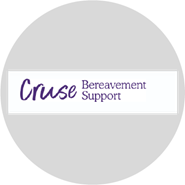
Cruse Bereavement Care
Cruse Bereavement Support provides free care and bereavement counselling to people suffering from grief.

Samaritans
The Samaritans have a specialised support service called ‘Facing the Future’ for those bereaved by suicide.
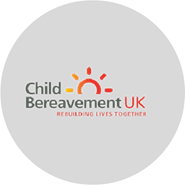
Child Bereavement UK
Support for individuals, couples, children, young people and families when a child dies or experiences bereavement.
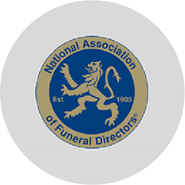
National Association of Funeral Directors
Association of independent funeral directors offering guidance on the process of arranging a funeral.
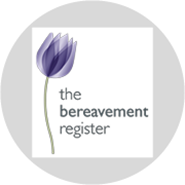
The Bereavement Register
The Bereavement Register may help you to reduce and cancel unwanted marketing post being sent to a person who has died by adding them to the bereavement register.
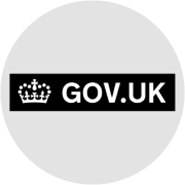
Get help with funeral costs
If you require financial support to cover funeral costs, the government can help in some cases if there is not enough money in the account of the deceased.
Glossary
Administrator
Show definition of Administrator Hide definition of Administrator
The person appointed when either no will can be found or there is no executor to carry out the intentions of the will.
Beneficiary
Show definition of Beneficiary Hide definition of Beneficiary
Someone who is entitled to receive a specific gift, sum of money or share of the estate.
Death Certificate
Show definition of Death Certificate Hide definition of Death Certificate
This is the legal document you get from a registrar, confirming the date, location and cause of the person’s death. We will accept the original death certificate, a certified copy, a death certificate verification form, or an interim death certificate.
Estate
Show definition of Estate Hide definition of Estate
A person’s estate includes everything they own and everything that’s registered in their name.
Executor
Show definition of Executor Hide definition of Executor
The person or persons named in a will to deal with the estate following a person’s death.
Personal representative
Show definition of Personal Representation Hide definition of Personal Representation
This is the executor or administrator managing the deceased’s estate. The personal representative is responsible for administering the estate, which means they need to collect all the assets and pay all bills and debts that need to be paid. Depending on how much money and assets the person who died had, the personal representative may need to apply for a Grant of Probate – if so, then no accounts can be closed until they have this document.
Grant of Probate
Show definition of Grant of Probate Hide definition of Grant of Probate
This is the official document that confirms to the executors that they have authority to act and which validates the will. Where there’s a Will, this will be a ‘Grant of Probate’. Where there’s no Will, it will be ‘Letters of Administration’.
Letters of Administration
Show definition of Letters of Administration Hide definition of Letters of Administration
This is the official document that appoints people to handle a person’s estate if:
- there is no Will
- there are no executors appointed in the Will
- no executors are still living
- no executors are willing to carry out the executor’s duties.
Inheritance Tax
Show definition of Inheritance Tax Hide definition of Inheritance Tax
A tax on the estate that generally applies when someone dies and when the value of their estate is above a specific threshold. The tax is paid before the estate can be distributed to the beneficiaries.
Probate
Show definition of Probate Hide definition of Probate
Probate is the legal process of dealing with someone’s estate after they’ve died. It involves collecting all of the person’s assets – their money, property and belongings – as well as settling debts and paying any taxes due, then sharing out what’s left as directed in the Will.
Will
Hide definition of a Will Hide definition of a Will
A legal document which indicates who should benefit from the estate and how. It also appoints an executor to distribute the estates, and may appoint guardians or contain funeral wishes.

